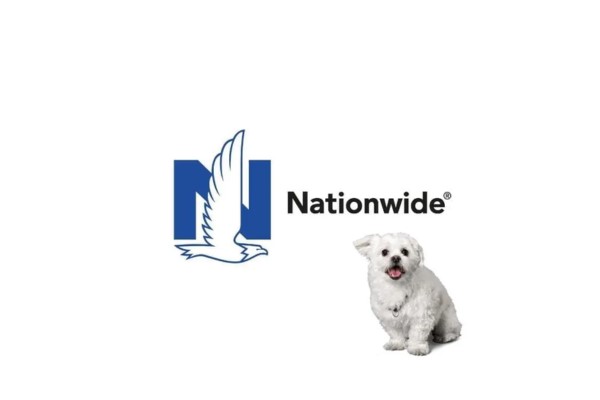Quick preview: “The Spark Shop” isn’t a single company with one identity — it’s a name used by several different shops, platforms, and projects worldwide. That makes it a useful case study in branding, trust, and how to evaluate small e-commerce or local retail businesses. Below I’ll walk you through the common varieties of “The Spark Shop,” how to spot which one you’re dealing with, why the name works (and sometimes hurts), and practical guidance if you want to buy from — or build — a business with this name.
Table of Contents
Introduction — why a name matters
A name like The Spark Shop is short, evocative, and flexible. “Spark” conjures creativity, energy, and a little bit of novelty — great for everything from handmade bath goods to branded corporate swag. But the same strength becomes a problem when multiple unrelated businesses use nearly identical names online. Confusion leads to lost sales, mixed reviews, and potential trust issues for buyers. This article untangles the different uses of “The Spark Shop,” explores concrete examples, and gives practical advice for shoppers, founders, and marketers.
The different faces of “The Spark Shop”
Corporate-branded retail
One major example of the name is Walmart’s “Spark Shop,” a centralized online store for company-branded apparel and gear. This version is official, large-scale, and backed by a clear corporate identity with defined shipping policies and return processes.
Independent local retailers and incubators
In smaller towns and cities, you’ll find “The Spark Shop” used as a retail incubator or local marketplace, where small businesses share space to sell handmade or specialty products. These shops often have a strong community focus.
Small online boutiques
There are several online stores using variations of “The Spark Shop,” sometimes with country-specific domains. They sell everything from children’s clothes to earbuds or lifestyle products. Some look professional and trustworthy, while others are clearly test sites or under construction — which can easily confuse shoppers.
Niche lifestyle and apparel brands
Some entrepreneurs adopt the name to launch mission-driven fashion or lifestyle businesses, often tied to causes such as sustainability, inclusivity, or creative expression. In these cases, the brand voice is central, and the shop name reinforces the message.
Social-first businesses
Many micro-businesses use Instagram or Facebook as their primary sales channels under “The Spark Shop.” These often sell handmade soaps, candles, or small gift items, and rely on direct messaging or local delivery rather than sophisticated e-commerce platforms.
Why the name proliferates
Three reasons explain why “The Spark Shop” is so widely adopted:
- Emotionally appealing: “Spark” suggests freshness, inspiration, and the start of something new.
- Flexible use: It fits many industries — from clothing to tech accessories to community shops.
- Easy branding: Simple names are more memorable, and in some cases domain names or social handles are readily available.
The downside, however, is brand dilution — where too many unrelated businesses use the same or similar names.
Problems caused by name duplication
When multiple businesses operate under the same name, three common issues arise:
- Customer confusion: Buyers can’t always tell which is the “real” shop, especially when search results show several with the same name.
- Reputation mix-ups: Reviews for one shop often get attributed to another, which can hurt trust.
- Marketing struggles: Competing for search visibility becomes harder when several companies share the same branding.
How to identify which “The Spark Shop” you’re dealing with
Here’s a simple checklist for buyers:
- Check contact details. A legitimate shop should list an address, email, and return policy.
- Look for social proof. Active social media accounts with real customer interactions signal trustworthiness.
- Read site notices carefully. Some domains are test sites with disclaimers — always pay attention.
- Search for reviews. Look beyond the site itself for independent customer feedback.
- Examine checkout methods. Secure payment gateways and clear refund policies are good signs.
- Compare pricing. If deals look too good to be true, approach with caution.
Lessons for founders
If you’re considering launching a business called “The Spark Shop,” keep these lessons in mind:
- Choose a distinctive domain or modifier (for example, “Spark Shop Gifts” or “Spark Shop Apparel”).
- Keep branding consistent across platforms — website, Instagram, packaging.
- Use an “About Us” page to tell your story and build trust.
- Monitor reviews and claim your listings on Google and local directories.
- If your business grows, protect the name legally through trademarks.
Case studies
- Corporate vs. micro-business: Walmart’s Spark Shop is a corporate-scale operation with full infrastructure. A small Instagram-based Spark Shop selling handmade bath products is entirely different, but both show up in searches under the same name.
- Testing site caution: Some online versions of The Spark Shop clearly display disclaimers like “for testing purposes only.” These are not live businesses but can mislead unaware shoppers.
- Community-driven shops: Local retail incubators using the Spark Shop name show how it can succeed as a shared marketplace for small vendors.
Quick tips for safe shopping
- Look for recent posts and customer feedback on social platforms.
- Pay using secure, buyer-protected methods like credit cards or PayPal.
- Keep records of order confirmations and receipts.
- When unsure, reach out to the shop directly and ask about return or shipping policies.
Conclusion
The Spark Shop is a name that feels energetic, simple, and inspiring. That makes it appealing for entrepreneurs, but also confusing for buyers when so many businesses share it. For shoppers, the key is to research carefully before buying. For business owners, the lesson is clear: choose a unique variation, build a strong brand identity, and create trust signals so customers know exactly who they’re dealing with.




